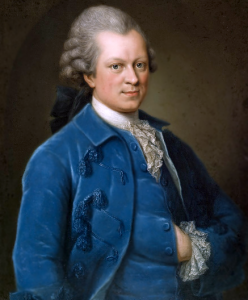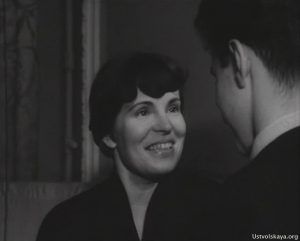I have been appointed the “dramaturge” (or “dramaturg”) of The Phoenix Symphony (TPS). As far as Scrabble words go, “dramaturge” isn’t worth a whole lot: just 14 points barring any Premium Squares (which double or triple the value of letters or words). It is, however, a rather more useful crossword puzzle word, with or without its final “e”; I have encountered it in puzzles a number of times over the years.

The term was created in the eighteenth century for a German writer, philosopher, critic, dramatic, and public relations guru named Gotthold Ephraim Lessing (1729-1781). In 1767, Herr Lessing was hired by the Hamburg National Theater (later the Seyler Theater Company) as the theater’s in-house critic of plays and actors. In time, he became known as the theater’s “dramaturge.”
Today, there is no single job description for a dramaturge; it depends on the type of performing arts organization (theater company, opera house, orchestra) and the particular needs of that organization. Having said that, at very minimum a dramaturge is “a literary editor on the staff of a theatre, opera house, or symphony who liaises with authors, composers, and performers and edits texts.”
My duties for TPS are as follows. One: write the program notes for the Playbills; for this coming season that means 19 program notes in all, at between 2500 and 3500 words per note. Two: create and record 13 separate video program notes of around 1200 words each. (We’ll record these at Phoenix’s Symphony Hall on August 19 and 20. August in Phoenix; can’t wait.) Three: deliver a standup, one-hour lecture on Beethoven, whose semiquincentennial (250th birthday) we will all be celebrating in 2020. Four: stand on stage with the orchestra at six subscription weekends and discuss the pieces on the program and offer a brief analysis and musical examples for one of those pieces. In doing all of these things, I’m supposed to be funny without being snarky or cheap. (Therein lies a challenge!)

Writing the program notes for what must be considered a major American orchestra has been a new and sometimes challenging experience. It’s not the writing per se; I’ve written many millions of words in the last 25 years on topics musical. No, the challenge, for really the first time in my career, has been to write about music in a vaguely complimentary way that I would never have chosen to write about. For all these years, I’ve always had the luxury of choosing to teach and write about music I liked and even loved (excepting, perhaps, Beethoven’s exquisitely awful Wellington’s Victory). But in writing these notes I have to take what music is given me and treat it all with respect.
Having said that, the opposite is true as well: I have discovered some wonderful composers and music that I might never otherwise have encountered, for which I am most grateful. One of those composers is Galina Ivanovna Ustvolskaya and the work is the subject of this week’s Dr. Bob Prescribes on Patreon.
